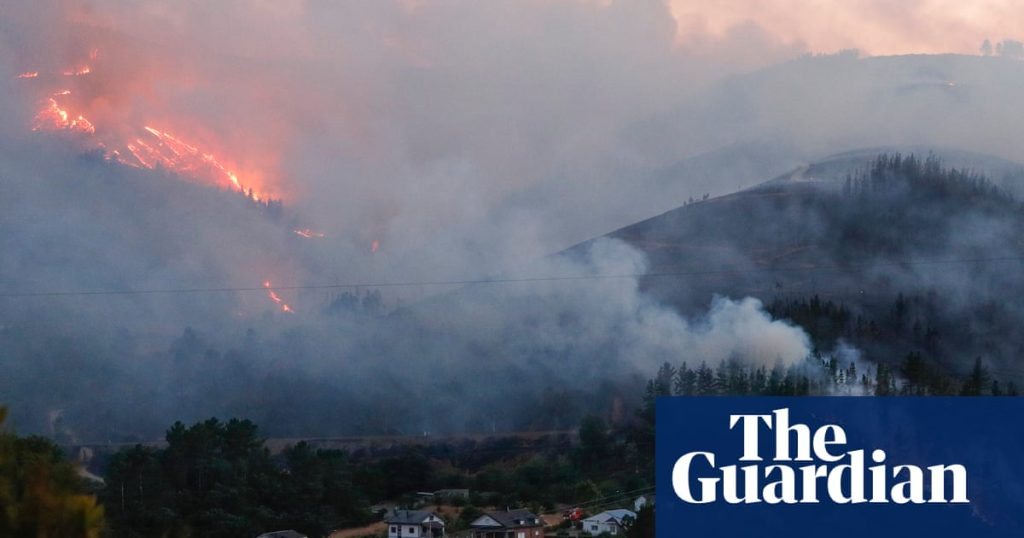The extreme weather that fuelled “astonishing” blazes across Spain and Portugal last month was made 40 times more likely by climate breakdown, early analysis suggests.
The deadly wildfires, which torched 500,000 hectares (1.2m acres) of the Iberian peninsula in a matter of weeks, were also 30% more intense than scientists would have expected in a world without climate change, according to researchers from the World Weather Attribution network.
“The sheer size of these fires has been astonishing,” said Clair Barnes, a climate scientist at Imperial College London and co-author of the study. “Hotter, drier and more flammable conditions are becoming more severe with climate change, and are giving rise to fires of unprecedented intensity.”
The researchers found that such conditions could have occurred once every 500 years in the preindustrial climate, but in today’s world – which has been warmed by the heat-trapping pollution from burning coal, oil and gas – they could be expected every 15 years.
The effects of climate breakdown on the extreme heat were even stronger, the researchers found. The 10-day maximum temperatures in the region last month were expected to hit every 2,500 years before industrialisation. They are now expected every 13 years.
The study, which has not yet been submitted for peer review, relied on weather observations rather than analysis of climate models that the group usually conducts in the immediate aftermath of destructive weather. A fuller analysis of the Turkish and Greek wildfires they published last week found climate breakdown had made the extreme weather conditions 10 times more likely.
Changes in land use have compounded the rising regional risk of untamed infernos. Several hot Mediterranean countries have struggled to deal with the effects of rural abandonment and ageing populations, as young people moving to cities have left behind unmanaged farmland with overgrown vegetation that can easily burn.
David Garcia, an applied mathematician at the University of Alicante, said the public debate in Spain had focused on the decline of rural activities and the resulting growth of vegetation. “However, much less has been said about the effect of climate change on these fires, which, as has been demonstrated, has been immense.”
Pedro Sánchez, the Spanish prime minister, announced details of a 10-point climate plan on Monday to respond to increasingly extreme weather. In an interview with the Guardian, the centre-left politician warned that climate action was being undermined by mainstream rightwing parties adopting the narratives of the far right.
The planet’s most important stories. Get all the week’s environment news – the good, the bad and the essential
Privacy Notice: Newsletters may contain information about charities, online ads, and content funded by outside parties. If you do not have an account, we will create a guest account for you on theguardian.com to send you this newsletter. You can complete full registration at any time. For more information about how we use your data see our Privacy Policy. We use Google reCaptcha to protect our website and the Google Privacy Policy and Terms of Service apply.
after newsletter promotion
“The problem that we’re now facing is that there are traditional rightwing parties that perhaps don’t deny the scientific reality, but which act and behave as if climate change doesn’t exist. And this is the biggest problem,” Sánchez said.

